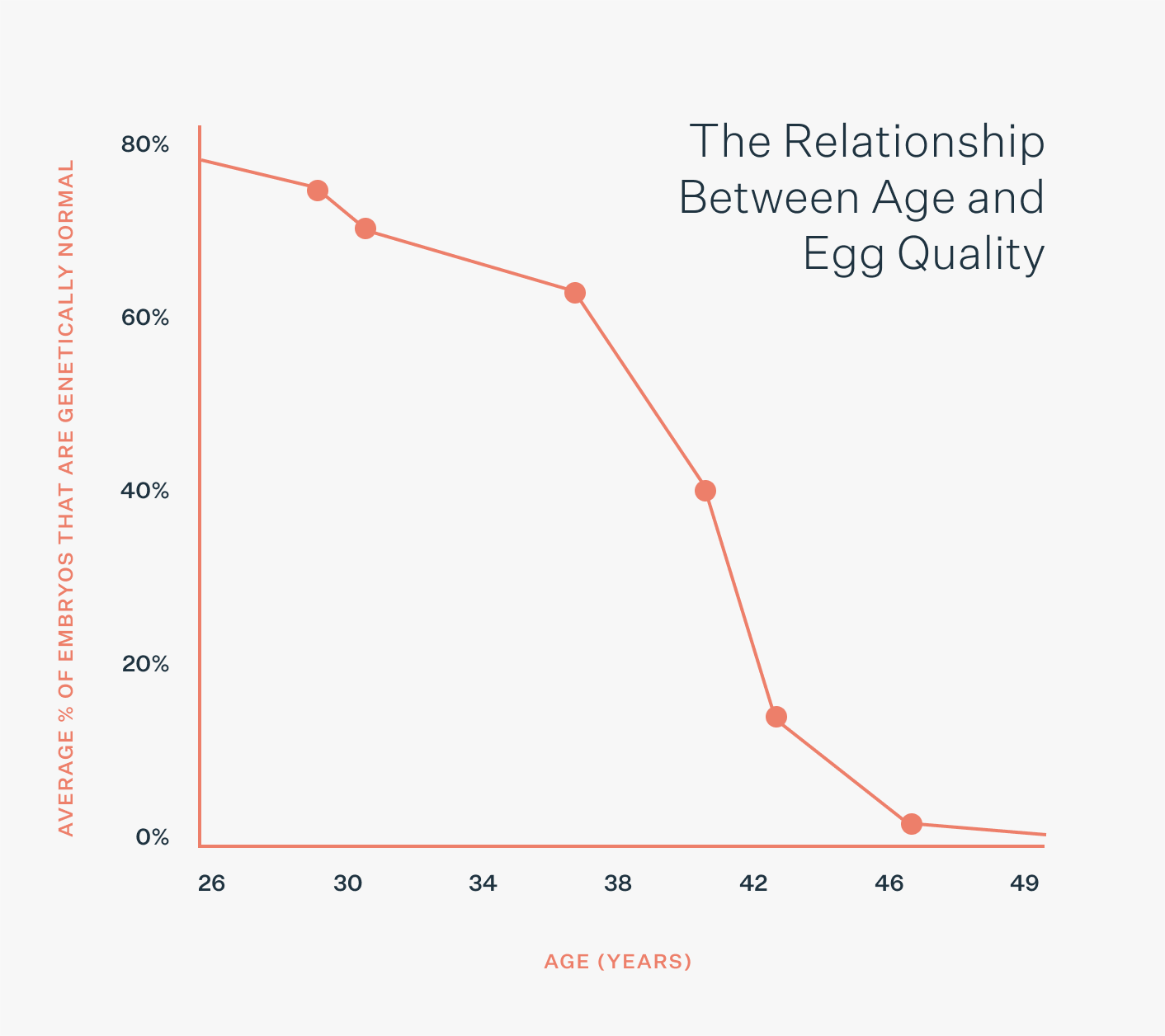Egg quality is as important as egg quantity when it comes to achieving a healthy pregnancy. The quality of an egg is defined as to whether an egg is chromosomally ‘normal’ (euploid) or ‘abnormal’ (aneuploid).
A chromosomally normal egg has 23 chromosomes, and when fertilised by sperm that also has 23 chromosomes, this results in a chromosomally normal embryo, which will have 46 chromosomes in total.
The best indicator of egg quality is your chronological age. As you get older you have increasing numbers of aneuploid eggs with too few or too many chromosomes. Any embryo conceived from an aneuploid egg will have too few or too many chromosomes, and typically these embryos will fail to implant in the womb or will result in miscarriage. Sometimes an aneuploid embryo may result in chromosome disorders such as Down’s Syndrome or Turner Syndrome.

Women in their late 30s and 40s have a higher percentage of abnormal eggs than younger women, and so it’s more likely that the one egg released each month will be abnormal. This is why natural fertility declines with age, and why infertility, miscarriage and genetic disorders are more commonly seen with women over 35.
Up to 35 years old, about 70% of your eggs are chromosomally normal, which then decreases to about 50%, and by the time you reach 40 you can expect about 10-15 % of your eggs to be chromosomally normal. Once an egg becomes abnormal, this can’t be reversed and egg quality can’t be improved.
Can you test for egg quality?
There isn’t a way to test for egg quality. The only way to discover if an egg is chromosomally normal is to try to fertilise it. If fertilisation is successful, you would then need to test the embryo for genetic defects.
The best indicator of whether your eggs will be genetically normal is simply your age. In your 20s, you will have mostly normal eggs, but with some abnormal ones, whereas once you reach your 40s you will have mostly abnormal eggs, whatever lifestyle factors might be involved.
Establishing the likely quality of your eggs helps you understand what your options for treatment might be. And we’ll be right here to help you through every step of your journey.
